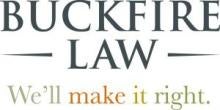Surveillance cameras have been used for years in places like convenience stores and other retail areas, as well as places like museums, largely as theft-prevention measures or safety measures for employees.
As technology continues to improve, more people and places are investing in surveillance technology. For example, many families are buying “nanny cams” to check up on babysitters or cleaning staff in their homes.
At the same time, people who rent out rooms or entire properties on Airbnb are turning to similar surveillance setups in order to ensure that their properties are not damaged by guests. However, there is never a reason for a “Peeping Tom” to watch you in private moments.
While use of hidden cameras certainly has increased in recent years, so have hidden camera lawsuits and invasion of privacy claims. Hidden cameras can cause various types of harm, especially when the footage is used against a person who has been recorded without consent.
Hidden cameras can be installed in a wide variety of places, and many of them might not be locations that you would immediately think to check. Examples of general places where a hidden camera may be installed includes but is not limited to:
-
Hotel rooms;
-
Airbnb rooms and apartments;
-
Retail store dressing rooms;
-
Public restrooms;
-
Gym locker rooms;
-
Tanning salons; and
-
Healthcare facilities.
According to an article in Forbes, it may be especially difficult to identify the location of a hidden camera or other visual surveillance technology. The following are some especially common places where people might try to hide a hidden camera in an Airbnb, in a hotel room, or in another location:
-
Inside clocks, including alarm clocks and clocks on the wall;
-
Inside smoke detectors;
-
Inside an electric outlet;
-
Inside books;
-
Inside plants or other pieces of décor;
-
Inside a picture frame; and
-
Inside a mirror.
Knowing how to locate a hidden camera can be difficult given that these devices are often created so that they can be hidden in plain sight without someone realizing it. According to the Forbes article, the following are some ways to discover whether hidden cameras have been unlawfully installed and whether you may have a claim:
-
Look for anything that seems out of place or does not appear to be functioning as it should. For example, is an alarm clock in a strange place or a smoke detector that does not seem to be functioning like a smoke detector?
-
Turn off all of the lights in a room and use the flashlight on your smartphone to look for reflective surfaces. According to the Forbes article, “most camera lenses, even tiny ones, reflect light.” Accordingly, your smartphone flashlight should pick up a reflection.
-
Download an app to look for any devices that are transmitting information.
Consider the following steps if you locate a mysterious hidden camera:
-
Take a photograph of the hidden camera;
-
Photograph the hidden camera in a longer shot that shows the location where the hidden camera was placed;
-
Remove or cover the camera;
-
Contact the owner of the Airbnb (or a manager of the property) as soon as possible; and
-
Speak with a lawyer about filing a legal claim.
Invasion of privacy is an intrusion into the personal life of another person without consent. This includes the “intrusion of solitude,” in which a person has a reasonable expectation of privacy.
When a camera or video camera is used to record someone in a situation where privacy is expected, it can be considered an invasion of privacy. It must be established that the victim had a reasonable belief that no one would be photographing or recording them in the setting.
For example, a hidden camera could be placed inside a common object within a residence so that anybody in the space does not recognize the visual recording device as a hidden camera. Cameras can also be hidden in public restrooms, businesses, and sometimes even public spaces where a person does not recognize the recording device as a camera.
There are multiple different laws that can affect hidden video camera rights and invasion of privacy claims. Generally speaking, it is lawful to have hidden cameras in public places because people in those spaces have no “reasonable expectation of privacy.”
In short, privacy laws generally say that we each have a “reasonable expectation of privacy,” or a “right to be left alone.” Accordingly, another person cannot do something to invade your reasonable expectation of privacy or your right to be left alone.
In a public space, such as a city park or on a sidewalk, people do not have a reasonable expectation of privacy. However, even in some parts of public spaces, there is a reasonable expectation of privacy. For example, a hidden camera is unlawful in a public restroom.
When a person places a hidden camera—often referred to as a “nanny cam”—in his or her own home, this kind of hidden camera placement generally is legal. To be clear, you are generally permitted to record visual images in your home without getting consent from anyone who comes into your home.
Similarly, you do not need to post information about the fact that you have a hidden camera, and you do not need to alert anyone who comes into your house or apartment that you have installed a video recording device. However, laws certainly vary from state to state, and you should never assume that you have a right to record another person, and certainly to disseminate any of the images from the recording, without that person’s permission.
Most states permit people to have hidden cameras within their own homes and do not require any notice of a hidden surveillance system. Yet, there are some limitations to a person’s right to install a hidden camera within their own home in some states.
For example, Michigan law (MCL 750.539(a) and MCL 750.539(d)) makes it unlawful to “install, place, or use in any private place, without the consent of the person or persons entitled to privacy in that place, any device for observing, recording, transmitting, photographing, or eavesdropping upon the sounds or events in that place.”
The Michigan statute defines a private place as one in which a person “may reasonably expect to be safe from casual or hostile intrusion or surveillance. Thirteen other states have similar laws.
Most laws do not prohibit a homeowner from installing a nanny cam in general, such as in a living room, kitchen, or child’s bedroom. It does prohibit installing a nanny cam in an area of the house where a person is entitled to privacy, such as in a bathroom or bedroom.
While business owners have a right to use hidden cameras in places like restaurants, gyms, or retail stores, they must still not invade on a person’s privacy. For example, a health club can use a video in the workout area but certainly not in the locker room.
Likewise, a hotel can hide cameras in the lobby and other areas, but not in the guest bedroom or bathroom. Indeed, in a hotel or Airbnb, people certainly have a reasonable expectation of privacy. If you are renting a space in which you are expecting to have privacy—i.e., a reasonable expectation of privacy—you cannot lawfully be recorded with a hidden camera.
If your privacy was invaded by a hidden camera, you may be able to file a hidden camera lawsuit. The most frequent legal theories used in these cases are based upon:
-
The legal theory of negligence;
-
Negligent infliction of emotional distress
-
Intentional infliction of emotional distress
-
An invasion of privacy claim.
With a negligence claim, the person whose privacy was violated may be able to file a lawsuit against a variety of parties depending upon the specific facts of the situation. For example, a hotel chain for an employee with a history of similar acts or for the failure to do a proper background check before hiring the person.
Airbnb may be held liable if it failed to take steps to ensure that a dangerous homeowner with a history of hidden cameras or had a criminal record for sex offenses was not renting spaces, Airbnb may be liable in a negligence lawsuit.
The same holds true for owners of health clubs, gas stations, massage parlor tanning salons, or any other place where customers do not expect to be recorded by anyone. Many of these cases are based upon theories commonly used in premises liability lawsuits.
If the party who placed the hidden cameras later disseminates that information on the internet, the injured party also may be able to file a civil claim related to internet crimes or sex crimes. You should discuss your options with a lawyer.
In Michigan, for example, most civil claims brought under a theory of negligence must be filed within three years from the date of the incident giving rise to the lawsuit (MCL 5805). The limitations periods are different in every state so it is important to seek legal advice immediately.




 />i
/>i

